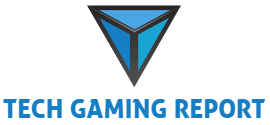The days of inserting a disk and pressing play are long gone. Nowadays, gaming consoles are computers in their own right. Most allow several functions, including streaming, team play, chat, and more.
Because gaming consoles rely on an internet connection to perform all these functions, they are part of the Internet of Things (IoT) and face the same risks as any IoT device.
Here, we take a closer look at the risks and review a few ways to keep your consoles safe from digital threats.
Gaming consoles & the key security risks
In 2011, Sony disclosed news of a hack on its Playstation network. According to Reuters, 77 million user accounts, including names, addresses, and even credit card data, were compromised in the breach.
At the time, the attack was one of the biggest hacks to date. Since then, though, hackers have grown increasingly sophisticated, and news of large-scale attacks is common in the ten years since then. In terms of gaming, it’s not just whole networks that are affected either; individual gamers frequently report having their accounts hacked.
For the most part, cybercriminals are primarily focused on garnering a user’s account credentials like their username and password. Once they have access to the gamer’s account, hackers can then steal any in-game inventory (which can then be sold for profit in digital marketplaces) or the account as a whole. They may also be able to access credit card information attached to the account.
Phishing attempts made via email, in-game chat, and other social engineering tactics are how most gamers inadvertently give cybercriminals access. Scammers may pretend to be from the gaming platform or offer free points or special “giveaways.”
Or, as was the case with Sony’s 2011 hack and EA’s 2021 hack, account credentials can be leaked via data breaches. These come from within the gaming company itself or via a third-party partner.
The best ways for gamers to protect themselves
Staying safe and protecting your gaming consoles is primarily a matter of good cybersecurity practices. Still, there are a few additional tools that can help keep the threat level at bay.
Use a Virtual Private Network (VPN) as standard
Gamers have been using VPNs for a long time to lower their ping and gain earlier access to new release games. But using a gaming VPN also confers a few cybersecurity benefits. For one, your online activity and any data transmissions are encrypted, which protects sensitive account info from any would-be snoopers. And secondly, a VPN can help you protect your whole home network and any IoT tools connected (including your consoles) when installed on your router.
Always choose multi-factor authentication
If your account is “secured” with just a single username and password, you’re leaving yourself open to any number of potential issues. Today, two-factor and multi-factor authentication is a standard step that adds another layer of essential security.
Don’t trust the people you meet online
Just because you’ve played Fortnite together a couple of times doesn’t mean that your new online friend is entirely trustworthy. Avoid disclosing any sensitive personal information about yourself, such as where you live, your date of birth, age, and even your pets’ names. In addition, scammers are known to frequent gaming forums with the kind of “offers” that lead to hacks. Be careful how you interact with others and exercise caution and suspicion.
If the platform is hacked, change your account info immediately
Platform hacks are becoming more common. As soon as you hear that one of your platforms is hacked, try and change your account information immediately. This may not be possible if the server is down, but keep trying in case your account information is compromised.
Gaming is fun, and for the most part, it’s safe. But you do need to keep your cybersecurity ducks in order and your consoles secured. Invest in a VPN, follow good digital hygiene practices, and exercise caution when interacting with the online gaming community.

Infuriatingly humble organizer. Entrepreneur. Zombie guru. Professional creator. Future teen idol.
